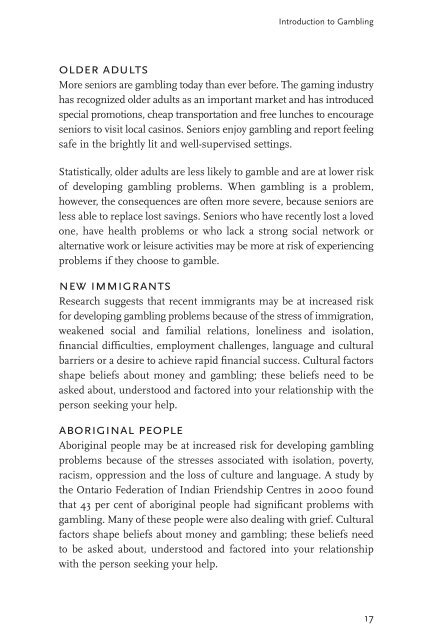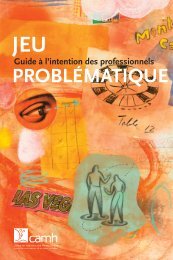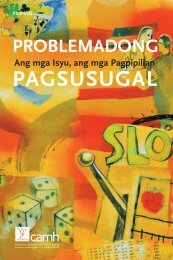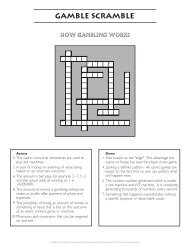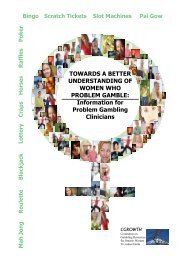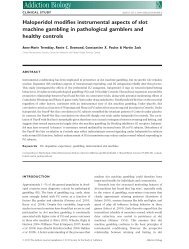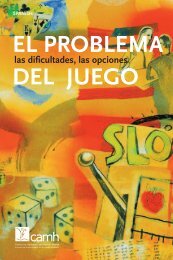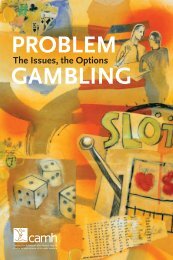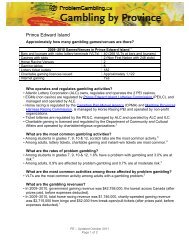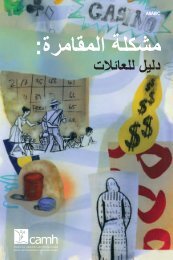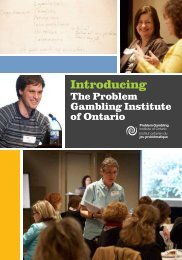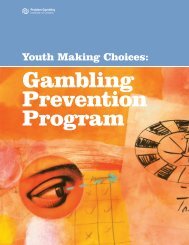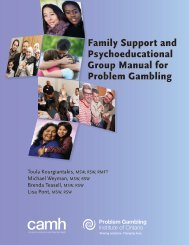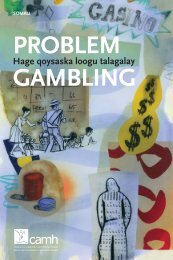Problem Gambling: A Guide for Helping Professionals
Problem Gambling: A Guide for Helping Professionals
Problem Gambling: A Guide for Helping Professionals
You also want an ePaper? Increase the reach of your titles
YUMPU automatically turns print PDFs into web optimized ePapers that Google loves.
Introduction to <strong>Gambling</strong><br />
older adults<br />
More seniors are gambling today than ever be<strong>for</strong>e. The gaming industry<br />
has recognized older adults as an important market and has introduced<br />
special promotions, cheap transportation and free lunches to encourage<br />
seniors to visit local casinos. Seniors enjoy gambling and report feeling<br />
safe in the brightly lit and well-supervised settings.<br />
Statistically, older adults are less likely to gamble and are at lower risk<br />
of developing gambling problems. When gambling is a problem,<br />
however, the consequences are often more severe, because seniors are<br />
less able to replace lost savings. Seniors who have recently lost a loved<br />
one, have health problems or who lack a strong social network or<br />
alternative work or leisure activities may be more at risk of experiencing<br />
problems if they choose to gamble.<br />
new immigrants<br />
Research suggests that recent immigrants may be at increased risk<br />
<strong>for</strong> developing gambling problems because of the stress of immigration,<br />
weakened social and familial relations, loneliness and isolation,<br />
financial difficulties, employment challenges, language and cultural<br />
barriers or a desire to achieve rapid financial success. Cultural factors<br />
shape beliefs about money and gambling; these beliefs need to be<br />
asked about, understood and factored into your relationship with the<br />
person seeking your help.<br />
aboriginal people<br />
Aboriginal people may be at increased risk <strong>for</strong> developing gambling<br />
problems because of the stresses associated with isolation, poverty,<br />
racism, oppression and the loss of culture and language. A study by<br />
the Ontario Federation of Indian Friendship Centres in 2000 found<br />
that 43 per cent of aboriginal people had significant problems with<br />
gambling. Many of these people were also dealing with grief. Cultural<br />
factors shape beliefs about money and gambling; these beliefs need<br />
to be asked about, understood and factored into your relationship<br />
with the person seeking your help.<br />
17


